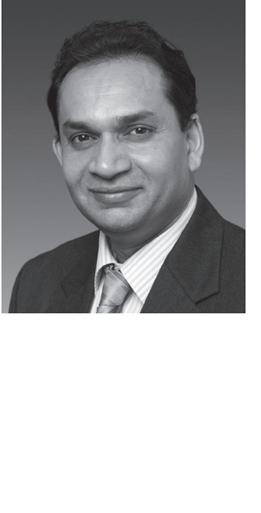
3 minute read
In democracies we grumble
from 2012-08 Sydney (1)
by Indian Link
India continues to be misrepresented by the Western media despite its emergence as a nation of stability in a world of economic unrest
BY NOEL G DE SOUZA
The ‘Arab Spring’ was not a revolution within democratic societies. Rather, it was a revolution to establish democracy in countries which had been under mostly military dictatorships. Those movements have yet to bear fruit, though some gains have been made.
In contrast, a similar type of movement with noisy demonstrations set up in India by Team Anna and its opposition allies took place within a democratic society, and were subject to the prevailing law-andorder rules. We then saw the spectacle of foreign press representatives drawing conclusions from surveys of less than 2000 people, to gauge the effects on 1.2 billion people. The analyses were sweepingly in favour of Team Anna though subsequent elections have shown that the Team had little or no effect.
Angela Merkel inherited her current position which involves both Germany’s financial muscle as well as the Euro mess. None of these were of her making. She has faithfully continued the German position and worked hard to try and save the Euro from oblivion. Europe is in economic shambles with negative growth rates being common.
Manmohan Singh has not inherited a mess. He is himself the architect of a new liberalised and industrialised India. The article is not sympathetic to him. For example, it points out that India’s growth fell to a nine-year low of 5.3%, without mentioning that it was the world’s highest. Manmohan Singh is not responsible for India’s reduced growth rate. If anything, his policies have helped India to have a growth rate which would be the envy of Europe.
(India’s) current growth rate, though fallen in conformity with the world economic situation, has been the world’s highest.
There have also been noisy European demonstrations, such as in Greece and in Holland, against proposed austerity measures. Such demonstrations (sometimes violent) have taken place within similar democratic contexts, but Western governments and analysts are surprisingly dismissive of these movements. European protests are often dismissed as promoted by minority parties, marginal groups or professional trouble makers. Contrast this with the Western press portraying Anna Hazare who led protests in India being portrayed as a virtuous saintly figure.
In democracies we grumble, and rightly so. That is the difference between India and China. In China, the government controls dissent. One may say that India is handicapped by dissent, but that is the way that its people want it to be. The Western (including Australian) press has often portrayed India as being in chaos and in absolute disorder. Yet India has emerged as one of the mostly rapidly industrialised countries of the world. Its current growth rate, though fallen in conformity with the world economic situation, has been the world’s highest.
TIME magazine’s new issue focuses on two world leaders, Angela Merkel and Manmohan Singh. The issue is given much importance. In Australia, TIME has Merkel on the cover with the words, ‘Why everybody loves to hate Angela Merkel and why everybody is wrong’, by Peter Gumbel. The Indian issue has Manmohan Singh on the cover with the title ‘A Man in Shadow’ by Krista Mahr. The titles betray the intent of the articles.
The TIME article blames Manmohan Singh for the reduced number of times that the Indian Parliament has met, but not mentioned the constant disruption and chaos that the opposition was creating. The Indian Government initially proposed to grant American supermarket giant Walmart license to open a limited number of stores. This was opposed by several members of the ruling coalition because of its effects on small traditional merchants. The article sees this as negative, but does not mention that the opposition was the most vocal in opposing the initiative.
TIME magazine seems to be following a double standard with one rule for Europe and another for Asia.
As India’s Commerce Secretary S R Rao has succinctly said, “It is quite distressing that from the past two months, the exports performance was not good. But the world over there has seen a tremendous dip in trade and this is going to be (the trend) in at least next one or two years”. He added that, “In Euro-zone we do not see any finality. The US market is also contracting and so is the Chinese one. Japan is again showing some distress. These are signs of recession all over the world.”

Grumbling, dissent and criticism are the essence of democracy. A democratic household does not stifle any of these essential aspects which ultimately lead to a more modern outlook. Australia has a high measure of public participation in dissent and looks with suspicion upon legislation which does not give them sufficient scope to appeal against arbitrary decisions.
The TIME article is not in resonance with the American government policy of treating India as a virtual ally whose navy is being encouraged by the USA to patrol the Indian Ocean, as the USA withdraws its vessels to the Pacific Ocean.










